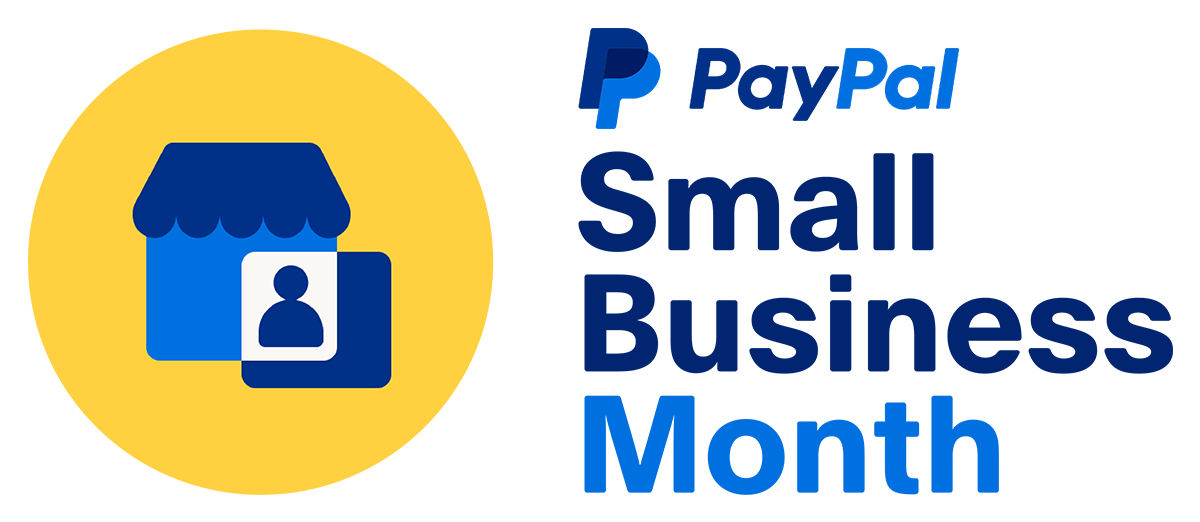Managing Fraud and Chargebacks: Business Leaders Weigh In on How to Help Keep Transactions Secure


Experienced business leaders share lessons they’ve learned along the way.
Earlier this month we published some questions from PayPal merchants around the world who are wondering about the moves they should make to ensure their business remains stable, secure and innovative in the year to come.
The last few years have been unpredictable and technologically, a lot has changed. To help them find answers to their questions, we sought out advice from experienced leaders in business. This week, we continue to explore some of the questions sent to us by merchants around issues like fraud, chargebacks and more.
Meet the advisors
Our advisors for this round of questions include Candace Conley, the owner and founder of a recreational cooking school called The Girl Can Cook, D’Shawn Russell, the founder of Southern Elegance Candle Co and Melissa Funk, CEO of Lynn & Liana Designs as well as Belinda Koh, a senior director with our sales team at PayPal and Noam Nevo, PayPal’s Director, Invoicing and Value add services.
Here are some of the questions they received and the advice they shared based on their experience.
How can an e-commerce business manage chargebacks effectively while also providing a positive customer experience?

SMB owners want to know how to best manage fraudulent transactions
Candace: Chargebacks are common for many businesses. We have avoided a lot of these situations because we provide a service and not a physical product. People sign up and pay for in-person classes. If a person says they were dissatisfied with the service or they didn’t receive what they ordered, we have a way of tracing their experience easily by having a payment processor, like PayPal. We then have detailed records to deal with disputed charges. Besides that, spelling out a clear refund and return policy on your website as well as having good communication with your customers reduces the chances of disputes. Transparency is more important than ever with the prevalence of fraud. Keeping customers informed throughout the sales process will help you avoid most problems.
Belinda: The best way to avoid chargebacks is by trying to ensure a good quality and quantity of the products you are selling. Provide pictures of items in multiple angles with detailed descriptions. Implement tracking API on all deliveries with a qualified shipping service that provides online tracking. Also, ensure the fulfilment process is robust.
Some merchants are taking up chargeback protection that has been offered by payment partners but most importantly, merchants are advised to provide a clear return and refund policy on their website where transactions are processed.
Conducting business online means opening up ourselves to new risks of fraud. How do we best protect ourselves and how do we stay on top of the latest trends in fraud?
Noam: With the rise in online commerce and digital payments, there has also been an increase in online scams and fraud, and this is costing businesses millions of dollars annually, according to a recent study on fraud by the Ponemon Institute. While businesses need to move to digital forms of commerce and payments to meet the needs of their customers, they must also put responsible tools in place to be able to prevent fraud for both their business and their customers. To help you protect your business and customers from a growing number of increasingly sophisticated scams and fraud attacks, it’s important to work with a trusted partner that already has the tools in place to be able to detect and prevent fraud, like 24/7 fraud monitoring, Fraud Protection, Chargeback Protection and even Seller Protection tools on eligible transactions. In addition to those tools, have continuous communication and engagement with customers. Educate them on the common scams and fraud in your business and give them the tools to partner with you, the seller, to identify and combat fraud. This will increase their trust in you and empower their continued business relationship with you. When looking for a partner to work with, it’s also important to choose a partner that has a wealth of transaction data on both the consumer and merchant side, and can combine that data with advanced machine learnings and analytics to help your business from existing and evolving threats.
Candace: I find that the best way to prevent fraud is to stay skeptical. If it seems too good to be true, then it usually is. Outside of that philosophy, here are the things I recommend to avoid being taken advantage of: Your payment processor should be secure. Since I have PayPal, I worry less about transactions. Double-check your customers’ information. We receive email requests with “odd” information provided and that sets off the alarm bells for me. We stay up to date on what scammers are doing and just try to stay ahead of them.
Belinda: We encourage merchants to migrate to latest product versions and integrations on their website to ensure they have the most up-to-date fraud fighting software. Familiarize yourself with the fraud protection tools that your payment processor has in place so that you can better work together towards the common goal of protecting your transactions.
I am using PayPal Checkout: How does the integration of other payment methods work that are popular in foreign European countries?
Belinda: When small businesses integrate with the PayPal Complete Payments platform, they can get access to the many alternative payment methods (APMs) and digital wallets that PayPal enables. This enables small businesses to accept a range of payments from customers around the world, enabling customers to pay with bank accounts, digital wallets, credit cards, APMs and other payment methods.
How can small businesses get around the continued supply chain issues?

D’Shawn: Buy in bulk. Many small businesses continue to deal with supply chain issues. Leveraging responsible credit and financing solutions is really helpful, so you can afford to buy in bulk and not have to deal with supply chain issues and shipping delays as frequently.
Melissa: When the pandemic first hit, we found getting supplies from our manufacturer challenging. We added two more manufacturers from different regions to our list to keep our supply steady and intend on continuing to use all three manufacturers in the future. The move has helped keep us in business despite rolling lockdowns across the North America.
It’s a big financial investment to create inventory you hope to sell in the future. It’s scary but you have to believe in yourself. Another way we have invested in our business is by tripling our warehouse space which now works as a fulfillment center. Not only does it handle deliveries, but it also allows for local pickup.
As the global economy continues to recover from the pandemic, we’ve noticed shipping costs have increased because of rising fuel prices and peak season surcharges. What steps can be taken to manage these costs?
Belinda: Seek out shipping partners that are smaller logistics players and logistic aggregators to help with the high cost. Often, they will offer a better deal than the bigger players. Most importantly, know your customer! Understand buying behaviour. Plan your supply and aggregate your shipping and warehouse locally based on your sales forecast.
The content of this article is provided for informational purposes only. You should always obtain independent business, tax, financial and legal advice before making any business decision.